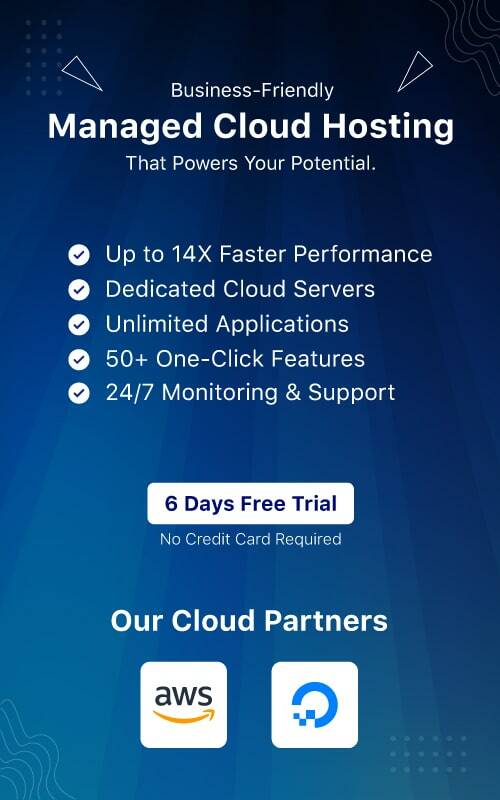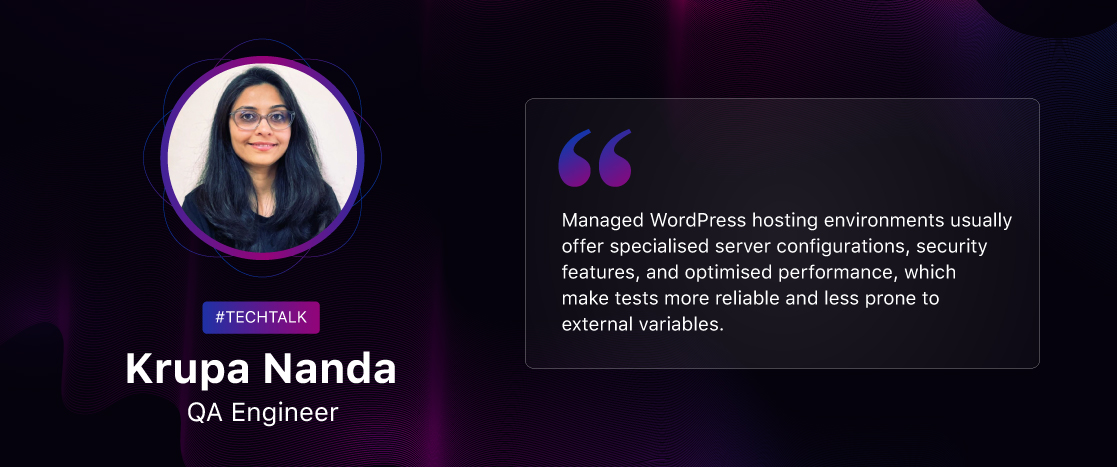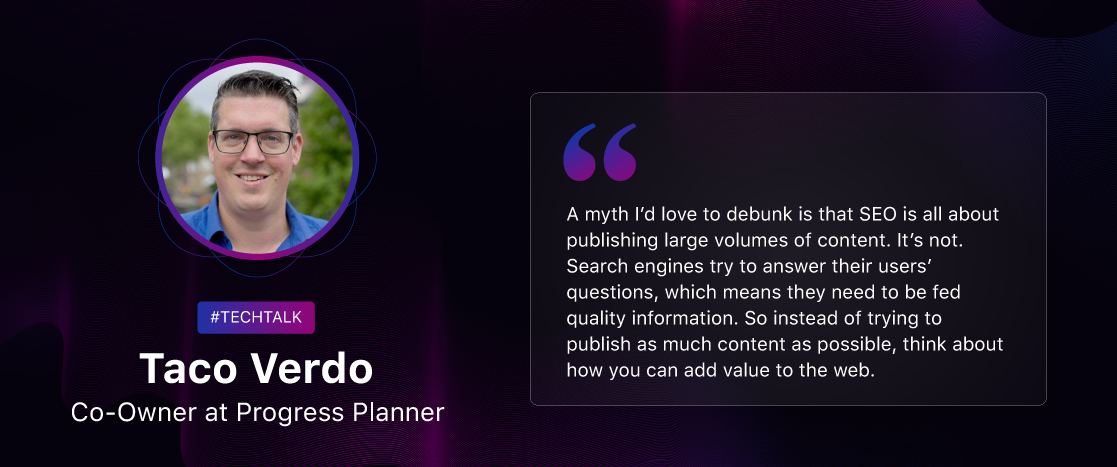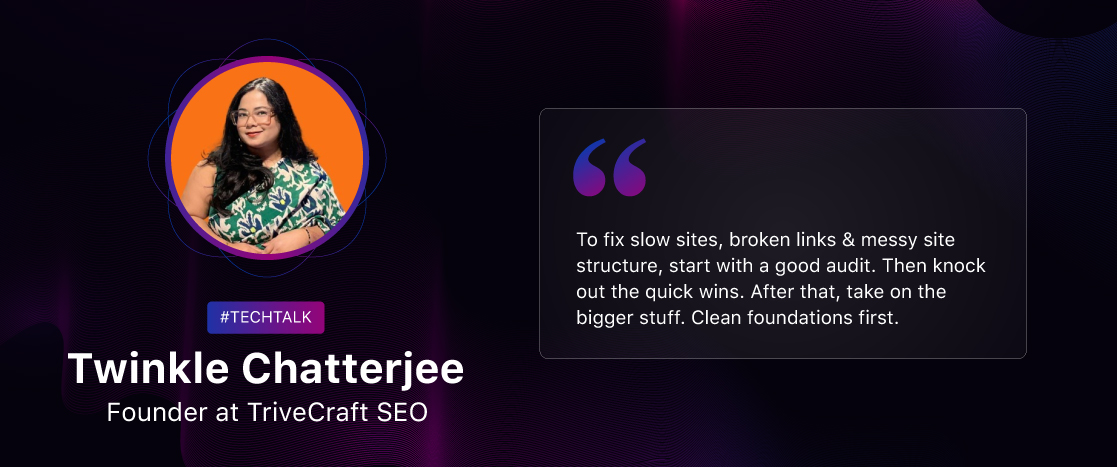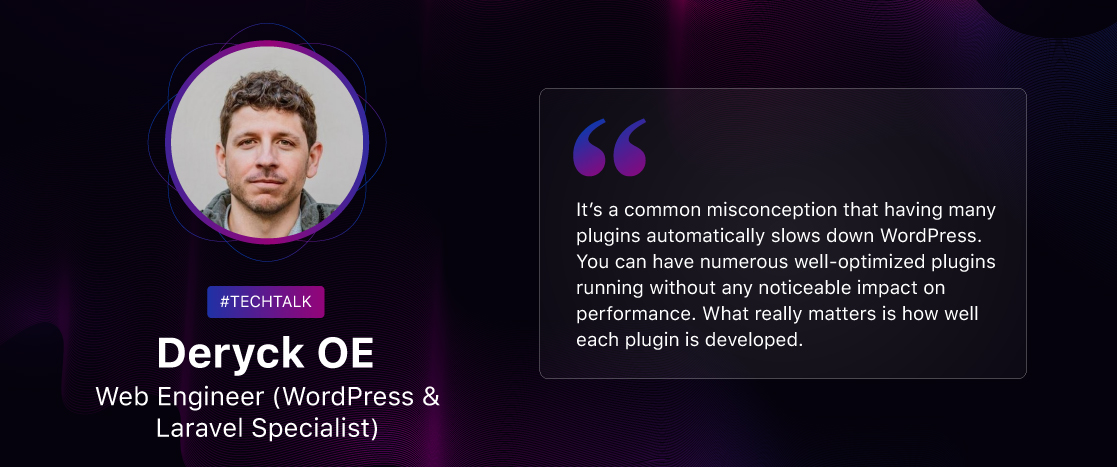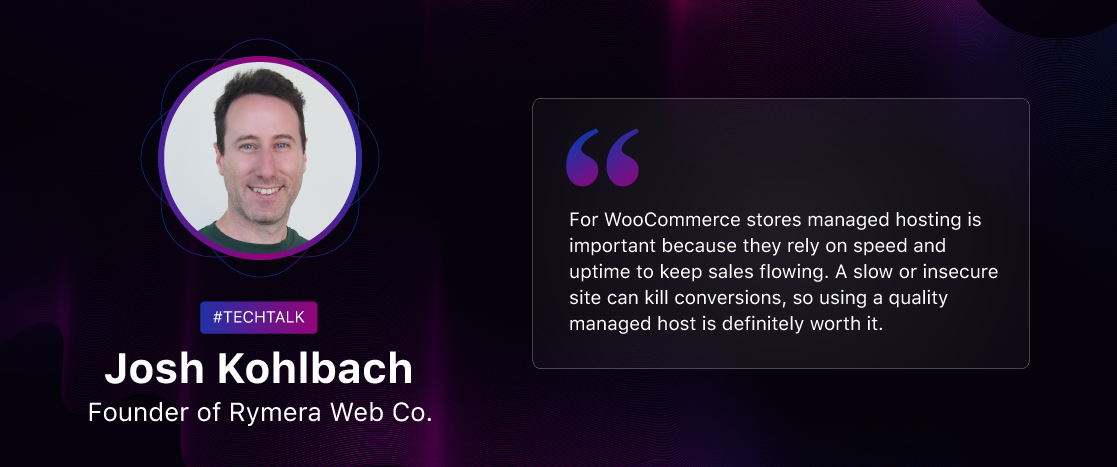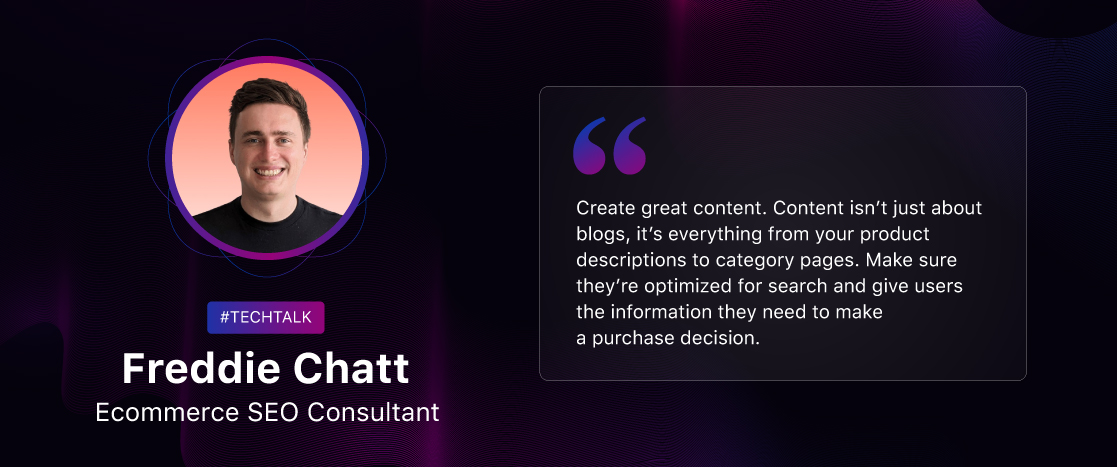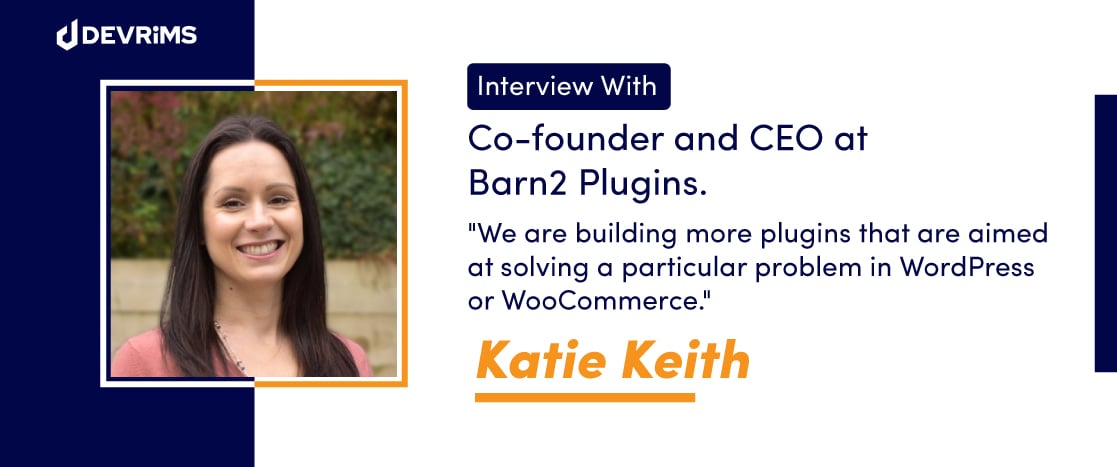
Devrims #TechTalk 012: Katie Keith Shares How Barn2 Plugins Became Successful
Katie’s journey with WordPress began in 2010 when she and her husband started a web design business and discovered the power of WordPress as a versatile website-building platform. From there, they ventured into plugin development, founding Barn2 Plugins in 2016 with the goal of creating innovative and effective solutions for WordPress users.
Throughout the interview, Katie shares her insights and experiences, discussing the challenges and triumphs she encountered while building Barn2 Plugins.
We hope you will enjoy this interview.
Devrims: Please tell us a bit about yourself and what initially caught your attention about WordPress.
Katie: Hi, I’m Katie Keith, co-founder and CEO at Barn2 Plugins. WordPress first caught my attention back in 2010 when my husband Andy and I had recently started a web design business. Andy was researching the best way to create a website and stumbled upon WordPress.
When he told me about WordPress, he somehow made it sound like a blogging platform so I was very skeptical about whether it would be suitable for building small business websites. However, he convinced me to use it for our first project – a local joinery company – and I was quickly convinced that WordPress is the best way to build any type of website.
Devrims: What were your goals when you started off with Barn2 Plugins?
Katie: Barn2 started life as a web design company called Barn2 Media (in fact, that is still its legal name). We started trading as Barn2 Plugins in 2016, when we launched our first plugins.
Our goal was to supplement or replace our previous income from building WordPress websites with product sales – specifically, plugins. We wanted to be able to spend less time working for clients, and build a more successful income stream that would give us more time and flexibility. Plugins seemed like an excellent way to do this because you build each one once and can sell it many times. In addition, plugins can be very simple or very complex. This means that you can build plugins at a scale which suits your capacity, even if you are just an individual developer.
Devrims: Would you like to share your experience with WooCommerce and WordPress plugins?
Katie: When we started selling plugins, we already had experience of building WooCommerce websites for clients. This experience taught us that WooCommerce users are more willing to spend money on plugins. After all, the plugins are helping to increase their own revenue! As a result, our first plugin was a small plugin aimed at solving a specific problem in WooCommerce: WooCommerce Password Protected Categories. This functionality was previously available for pages and posts, but not entire categories. We had read in online forums that store owners wanted ways to create hidden sections of their store, for example to sell different products to different clients, or sell products at a discount to wholesale/B2B users.
Our first plugin was unique when it was first launched (sadly, this is no longer the case) so it started getting sales very quickly. This inspired us to continue building more plugins, each aimed at solving a particular problem in WordPress or WooCommerce. Amazingly, we were making enough from the plugin sales to stop taking on new clients in under 6 months!
Over time, we continued releasing more plugins and listening to customers in order to keep improving our existing plugins. Our biggest seller was WooCommerce Product Table, which lists products in a quick one-page order form. This has now sold well over a million dollars and is still going strong.
More recently, WooCommerce Product Table has been taken over by a newer plugin called Document Library Pro. This has proved incredibly useful to people wanting to add a searchable document or resource library to WordPress.
Our first few plugins were all very niche, as we had reduced development capacity and hadn’t built a team yet. Also, I wasn’t confident in marketing a mass market plugin and felt that going niche would be easier.
Over time, we have built a team of 17 people and become more confident in releasing bigger plugins. For example, our most recent major releases are a WooCommerce product options plugin and a WooCommerce product filtering plugin. While these still perform a specific task, they are much more complex than our earlier plugins and can benefit a big proportion of store owners.
Devrims: Have you encountered any significant challenges or difficult moments throughout your journey? If so, please describe how you managed to overcome them.
Katie: My biggest challenge has been learning when to let go of a task that has previously been my responsibility. When we started selling plugins, Andy did all the development work and I did – well, everything else! So that includes customer support, marketing, business development, and so on.
As the business grew, it wasn’t realistic for me to continue doing all of these tasks on my own. While I was happy to outsource boring tasks like accounting, I really struggled to delegate support. After all, I knew our plugins inside out and couldn’t imagine how anyone else could ever communicate with customers as effectively as me!
I kept holding onto the support for far too long, until it was taking up about half of my time. I was probably responding to 30-50 support messages per day!
Eventually, it became clear that this wasn’t sustainable. There was a huge opportunity cost of spending half my time on support instead of growing the business.
I hired some part-time support engineers from a company called WPSaas which doesn’t exist any more. They were ok but only handled simple tickets, and I still did all the complex ones. When they stopped trading, James Kemp from Iconic recommended LevelUp who specialize in supporting WordPress theme and plugin companies. I contacted them and read some previous responses from one of their support engineers called Edge, and was amazed by the quality – I could instantly tell that I would be proud for that person to be communicating with customers on behalf of Barn2.
Edge started working with us, and is still with us 4 years later. The support team now consists of 7 people and we constantly receive feedback from customers about the high standard of support we provide. It’s hard to imagine how reluctant I was to let go of this part of my role!
Devrims: Among the various plugins listed on our website, namely WooCommerce Product Table, Posts Table Pro, and Password Protected Categories, the question arises regarding which holds the utmost importance for businesses today. What’s your take on the matter?
Katie: Out of the plugins you mentioned, WooCommerce Product Table is easily the most important for businesses today. It is still our second biggest selling plugin (after Document Library Pro) 6.5 years after its initial release, and for good reason.
WooCommerce Product Table is popular because it provides an optimized layout which is a much better way of selling certain types of products. Most WooCommerce stores have a fairly basic layout which displays each product with a big image, and you have to visit a separate product page to choose quantities or variations and add to the cart.
With WooCommerce Product Table, this all takes place on one page. It lists products in a quick one-page order form where customers can quickly select multiple products, choose quantities and variations and add them all to the cart in a single click. Store owners get full control over their product tables, for example they can customize the colors and choose which columns of information to include in the table.
One thing I love about WooCommerce Product Table is how it can increase the sales of many different types of products. For example:
- Technical products where customers need extra data about each product, and where big images aren’t important.
- Any type of store where the customer is likely to buy more than one different product.
- Build-your-own product websites with customizable products or gift boxes.
- Wholesale stores where B2B users need a quick way to order their regular products.
Due to its popularity, we have continued to invest in WooCommerce Product Table over the years. This includes adding features, improving user experience, and generally making sure it’s still the best product table plugin for WooCommerce. For example, we are currently working on a user-friendly table generator which will make it easier for people to create custom product tables and insert them anywhere on their website.
Devrims: What are the top three factors influencing your decision when choosing a managed WordPress hosting service?
Katie: I love managed WordPress hosting services because you know that your site will be fast to load and will run smoothly, without you needing to waste technical resources configuring servers or doing the work yourself. Nowadays there are quite a few managed WordPress hosts available, and this is my advice on choosing the best one:
- Reputation – Managed WordPress hosts can be very good or not-so-good. Look at reputable sites like TrustPilot to see what customers really think of each host. That’s better than taking their word for it.
- Performance – Most managed WordPress hosts have a big focus on performance, but some are better than others. Read blog articles comparing performance on the hosts you’re considering, and make this part of the decision-making process.
- Cost – While you shouldn’t necessarily go for the cheapest option, there’s no point paying more than you need to. Instead, research multiple companies and choose one that looks like it will meet your needs for an affordable price. (But don’t be tempted to save money by going for non-managed hosting – this is nearly always a false economy as you end up paying for it in lost sales or lost time in fixing problems!)
Devrims: What is your perspective on the future of WordPress in light of recent advancements in AI? Are there concerns that these developments could put jobs at risk?
Katie: At WordCamp Europe in June 2023, Matt Mullenweg explained that AI and WordPress are highly compatible because they both democratize the web in their own way. I love that way of looking at AI!
I’m certain that AI will become a bigger and bigger part of WordPress. I don’t know at what stage it will become part of the WordPress core – maybe adding it to the onsite WordPress site will be first. However, WordPress companies will continue building plugins that allow site owners to add AI functionality.
At the moment, I feel that this process is being rushed and products are being released before the AI is good enough. For example, I have tested several chat bot plugins which I trained on our documentation and knowledge base, and none of them were anywhere near the standard that I would be happy for our customers to interact with. Personally, I’d rather wait until the industry has developed further.
I think that the developments in AI will change rather than replace areas of the workforce. Some lower-level jobs may no longer exist if the AI can do an equally effective job. However, AI will also create many new jobs – both programming the AI to writing prompts and using it more effectively. It’s an interesting time!
Devrims: Tell us about your hobbies and how you like to spend your free time.
Katie: Almost 2 years ago, I moved from England to the sunny Spanish island of Mallorca. My hobbies now change depending on the weather and time of year. In the winter and Spring, I meet a group of friends to go hiking in the Mallorcan countryside and mountains. In the summer, I swim a lot and also enjoy stand-up paddleboarding. It’s the perfect place to do all these things!
Devrims: Can you provide a glimpse of your office? It will be great to see some pictures of your workstation.
Katie: With my parents’ help, I recently bought an apartment near my house which I am using as my office. When my family visits, they stay in it and I work from home instead.
Here are some pictures of my lovely new office:
Devrims: What advice would you give to newcomers starting their journey in WordPress?
Katie: I’d advise newcomers to start by deeply immersing themselves in the WordPress industry and getting to know as many community members as possible. Attend WordCamps in person. Follow WordPress people on Twitter. You can find me at: https://twitter.com/KatieKeithBarn2. Join Post Status and be an active member of their Slack community.
Once you start working with WordPress, you’ll be surprised by how many opportunities you find in whatever area you’re interested in. However, you need to be “in there” to spot the opportunities – it’s hard to do it from the sidelines. Whether you want to provide WordPress services or products, you’ll be amazed at what opportunities are available and how many people are around to support you on your journey. It’s an industry like no other.
Devrims: Please provide the name of someone who has had a notable influence on your journey, as we would be interested in conducting an interview with them.
Katie: I think you should interview Yoast or Marieke because they built one of the most successful WordPress companies in the industry, while always conducting business in an ethical way. This is an interesting time to speak with them because they stayed with Yoast when it was acquired by Newfold Digital, and recently left to create Emilia Capital where they are investing in other WordPress companies and helping them to grow.
Rapid Fire:
| Devrims | Katie |
| WFH or WFO or Hybrid | Fully remote |
| Croissant lover or Pancake lover | I love both croissants and pancakes. Please don’t make me choose! |
| Mac or Windows | I switched to Mac a few years ago and have never looked back. |


